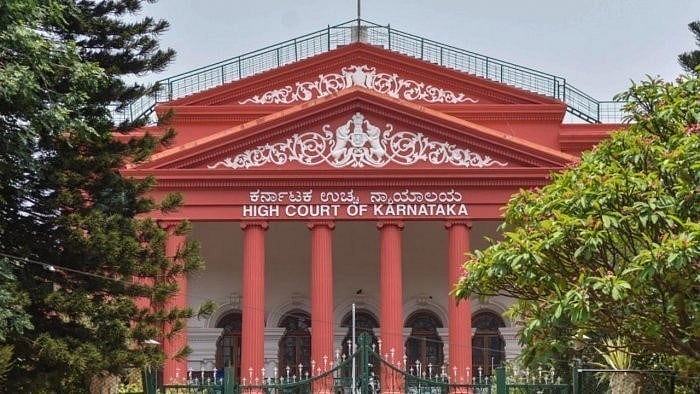
Karnataka High Court
Credit: DH File Photo
Bengaluru: The Karnataka High Court has requested both the central government and the state government to make every endeavour to enact a statute on the Uniform Civil Code (UCC). Justice Hanchate Sanjeevkumar made this suggestion while deciding a set of Regular First Appeals (RFAs) concerning the claim over the properties of a deceased Muslim woman.
“The enactment of legislation on the Uniform Civil Code, as enshrined under Article 44 of the Constitution of India, will achieve the object and aspirations enshrined in the Preamble of the Constitution of India, bringing about a true secular democratic republic, unity, integrity of the nation, and securing justice, liberty, equality and fraternity. The Court is of the opinion that bringing in a law on the Uniform Civil Code and its enforcement would certainly give justice to women, achieve equality of status and opportunity for all, and accelerate the dream of equality among all women in India, irrespective of caste and religion, and also assure dignity individually through fraternity,” Justice Hanchate Sanjeevkumar said.
The court cited the debates in the Constituent Assembly on the subject of the UCC and stated that while some members favoured its implementation, others expressed differing opinions. “The chairman of the drafting committee of the Constitution, Dr B R Ambedkar, in his most illustrious speech, argued in favour of the Uniform Civil Code,” Justice Hanchate Sanjeevkumar noted.
The court further stated, “…the Court is of the opinion that it should make a request to the Parliament and State Legislatures to make every endeavour to enact a statute on the Uniform Civil Code. It has been informed to the Court that some states (Goa and Uttarakhand) have already enacted laws on the Uniform Civil Code. The judge further noted in his order that the Registrar General should forward a copy of this judgment to the Principal Law Secretaries of both the Union of India and the State of Karnataka, with the hope that the Union of India and the State of Karnataka will make an effort in this regard towards enacting the legislation on the Uniform Civil Code, achieving the object of Article 44 of the Constitution of India.”
The case at hand
The case concerns the dispute between the siblings—two brothers, a sister—and the husband of the deceased Shahanaz Begum. The husband, who is currently 89 years old, challenged the order of a Bengaluru court that granted a share of his wife’s property to her siblings. The husband claimed that he had purchased the properties in his wife’s name out of love and affection for her, and that the properties could not be shared.
Justice Hanchate Sanjeevkumar noted that both the husband and wife had worked as teachers in government schools and had no children. The court also observed that marriage among Muslims is considered a civil contract, rather than a sacrament, as per Hindu law, and that the law of inheritance is different under Muslim law.
“When, under Hindu Law, a daughter is given equal status and rights in all respects, enjoying rights equal to those of a son, the same is not true under Muslim law. Therefore, the Court is of the opinion that our country needs a Uniform Civil Code in respect of personal laws and religion, only then will the object of Article 14 of the Constitution of India be achieved. A ‘Daughter’ under Hindu law has equal status, rights, entitlements, and interest as a son, and in the case of a wife, she has equal status to that of a husband. This approach fulfills the object and principle enshrined under Article 14 of the Constitution of India, but this is not the case under Muslim law,” the court said.
In the present case, the court ruled that the two brothers of the deceased are entitled to a 1/10th share each in the suit schedule properties, while the sister is entitled to a 1/20th share. The husband is entitled to a 3/4th share in the suit schedule properties, the court ruled.